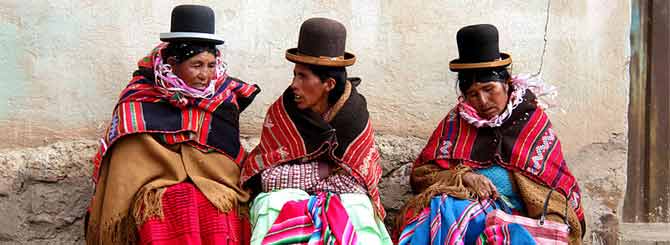Author: José María Medina Rey, Prosalus CEO, Spain
Editor’s note: this is the fourth of a series of blogs entries on the right to food that we are glad to host on our webpage. Tomaso Ferrando (scientific coordinator of the FLF master) and Jose Luis Vivero Pol (faculty member) have been gathering the contributions and we all look forward to receiving more in the future.
During three days in November, a group of people representing different countries and institutions from Spain, Latin America and the Caribbean, were summoned by the Spanish Agency of International Cooperation for Development (AECID) and the Regional Office of FAO to attend a workshop on knowledge management oriented to the effective implementation of the human right to food in the region. Participants included the Economic Commission for Latin America and the Caribbean (CEPAL), Central America Integration System (SICA), Program Mesoamerica without Hunger, Pan-american Health Organization (PAHO), Parliamentary Fronts against Hunger, Right to Food Watch in Latin America and the Caribbean, Inter-American Institute for Cooperation on Agriculture (IICA), some universities and a few NGOs specialized on the topic.
Among the interesting issues raised during the event, I would like to bring the reader’s attention to the discussion concerning the remarkable progresses in the constitutional and legal recognition of the right to food in the region. In particular, the conversation stressed the diversity of actors involved in this legal boost to food and nutrition as human rights, and the perceived need to improve the knowledge required to the practical implementation of this right at local and national level. One crucial point raised during the meeting was that the accompanying process of knowledge management should learn from existing experiences, understand how it has been generated in the region in the last fifteen years and use them to replicate, scale up and promote public policies conducive to the effective application of this right to the malnourished people first, and to every citizen then.
In this frame, the organization I represent –Prosalus– presented the outcome of a five-year intervention connected to the right to food (between 2010 and 2015) that involved 3250 families in 144 rural Andean communities of Peru and Bolivia. The intervention -co-funded by AECID- was implemented with six local NGOs: ESCAES and ADIAR (in Peru) and ACLO, CIPCA, AYNISUYU and IPTK (in Bolivia). Based on a bottom-up approach, the experience sought to understand and support the drivers to realize the right to food of rural populations living in conditions of strong vulnerability[1].
The departing point of this intervention was the need not only to raise awareness but to inform adequately the participant communities about what means to be right to food holders and support their empowerment vis a vis the duty-bearers (local, municipal and national authorities). So, in addition to typical components of Food and Nutrition Security (FNS) interventions (i.e. access to food in enough quantity and quality through agriculture and livestock diversification based on a sustainable management of the natural resources or community health promotion) the project aimed to strengthen peasants’ and indigenous’ organizations through the active participation of men and women in the construction and monitoring of FNS public policies.
Based on the non-discrimination principle, the intervention paid particular attention to mainstreaming the gender equality approach. Women’s participation in decision making about the productive strategy of the family and the surplus destination was encouraged; the valorisation of women’s work, both productive and reproductive, was disseminated through different appropriate techniques and games; and the promotion of women leadership in community organizations was purportedly sought after throughout the project lifespan. All this was systematically done by incorporating capacity building activities on participatory mechanisms, institutional strengthening and the importance of family farming.
Bolivia has enshrined the right to food in the Constitution (Art. 16), what has certainly influenced the new political and legal framework that sustains a food system geared towards feeding all adequately and respecting Mother Earth. The increased awareness around the legal framework protecting food, a fact that is very rare in the Global North, played an important role in creating the space to empower people and increase their participation as well as in the communities’ decision to prepare “Cartas Orgánicas” (something like a Constitution of each local government) that include the formal recognition of the right to food[2] and that require municipal budgetary allocations to activities related to the fulfilment of this right.
To sum up, the human right to food does not become a reality till the people most affected by its violation, the vulnerable families living in food insecurity, are not aware of its existence and implications, are knowledgeable on how to practically implement it, and reclaim and use it as part of their daily lives. Thanks to a bottom-up approach and to the educational goal of the project, it is possible to affirm that hundreds of families and community-based organisations have become knowledgeable on this right, its components and the political and budgetary implications at local level. Finally, they have begun to explore new ways to claim it and to advocate on the duty-bearers -the local authorities. Knowledge is power.
José María Medina Rey is the CEO of Prosalus and associate professor of International Studies at Loyola Andalucía University. He is also the “Right to Food Urgent” Spanish campaign coordinator. He has been involved in development projects and advocacy activities about the right to food since 2002 until now.
[1] The systematization document is available in Spanish in the web
[2] The drafts of “Cartas Orgánicas” in all the municipalities where the intervention has been present have included the recognition of the right to food

